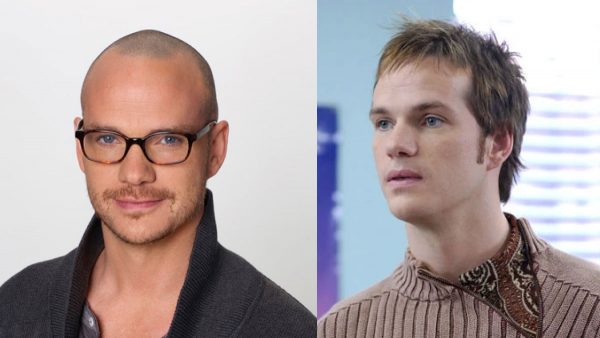
Publishers note: WEHOville is proud to present an exclusive interview with Peter Paige. I first met Peter at a pool party in the early 1990’s and we have been friends ever since. I’ve watched him grow from Emmett to Activist. Peter is an inspiration too many and advocate for all of us. It’s an honor to share an up close and personal look at the fabulous Peter Paige.
Hi Peter, great to have you here on WEHOville. First, introduce yourself — where were you born and those tidbits?
I was born in West Hartford, Conn. — but we didn’t stay there (or anywhere, for that matter) for very long. By the time I graduated high school, I had lived in Connecticut, Indiana, Ohio and Illinois briefly, then back to Indiana, then Maine, Alabama and North Carolina.
When did you come out of the closet?
As we all know, it’s such a funny, kind of on-going, never-ending process. But for me, I started coming out in high school – I was fifteen. Got my first boyfriend, told a few of my friends. Within a couple weeks of arriving at college, I was out to most people in my life. And you have to remember, this was the late ’80s — things were different back then.
Tell us about Queer as Folk, and your role Emmett.
I booked QAF about three years after I arrived in LA. What a gift. I was thirty, and had been scraping away for almost a decade, doing some theatre and a few TV guest stars, mostly on sitcoms. I came really close to playing Jack on Will and Grace. Then there was about a year where every job I didn’t get was because I was “too much like Sean.” I was so worried that was going to be my whole story — that I almost got something. Fortunately, QAF came along, and it was meant to be. I loved the whole humanity of Emmett — this effeminate gay man who saw himself as strong and sexy and worthy of love. It felt revolutionary at the time, to play a nelly queen who wasn’t filled with self-loathing. And I learned a lot from him, from playing him.
How did that show change your life or how did you see your role influence the LGBTQ community?
It changed my life in a million ways — except the most important ones. My friends from college were (and still are) the center of my world, my chosen family. But QAF gave me a platform and a voice and taught me that TV was a tool that could be wielded for good, wielded for change. It taught me that entertainment could be both fun and engaging as well as “about something” — that TV could be used to move the needle, to change the conversation. And I’ve taken that ethos into all the work I’ve done since — the TV shows I’ve co-created (The Fosters, Good Trouble), and movies I’ve directed (like The Thing About Harry). And being among the first out openly queer actors —truly, there were just a handful of us back then — was really empowering, even if it definitely came with challenges.
Do Peter and Emmett have a lot in common?
Some things for sure — we both are emotional and goofy. And we both value our friends above all else. But there are a fair amount of ways we are different — like I don’t have the fetish he does for Muppet fur jackets and skin-tight pleather pants.
What does West Hollywood mean to you?
WeHo was this kind of mythical oasis when I first moved here — a place with gay politicians and a gay police force and bars and restaurants and and and. There wasn’t anything like it in the world, really. It will always hold a special place in my heart for being a place I felt totally safe.
It was great seeing you kickoff the AIDS Monument groundbreaking. Tell us what that means to you, or how you have been involved.
I was so honored to be there, to be a part of such an important event. I think the monument is so vital — not just to honor the lives lost, but to remind people of what the community has been through. the young people — well, let’s just say — it’s easy to forget. And we can’t let that happen.
When did your activism start?
I’ve been political since I was a kid. I was campaigning for Democrats in high school in North Carolina. I was protesting the first Iraq war when I was in college. I marched on Washington more than once. So it’s always been a part of me. I’m incredibly grateful that my big break came in the form of QAF, because it combined the two things I am most passionate about — politics and art.
What are some of your passions and what are you working on now?
My passions remain the same — telling stories and lifting people up. Good Trouble is in its third season on Freeform/Hulu. I have a pilot for Amazon and a feature coming together that I’m very excited about. I’m hoping that will go into production toward the end of the year. And I’m working on Station 19, the Grey’s Anatomy spin-off on ABC, which has really become a powerful show about the complexities of the world we live in.
Thanks brother, it’s great to be your friend for so many years and I am very proud of you. Thank you for sharing your story with WEHOville.

Always your fan!
Queer as Folk is epic. I was hiding my sexuality and the show helped me process my feelings. Thank you
I’m a longtime fan. Thank you for sharing .